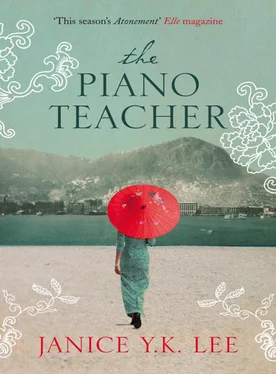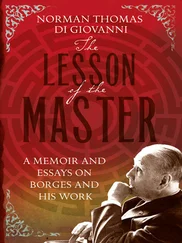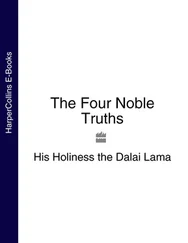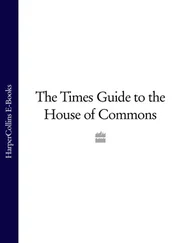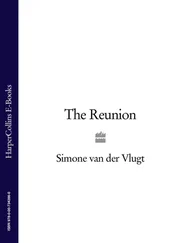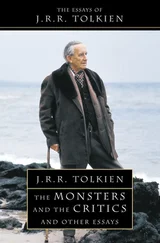1 ...6 7 8 10 11 12 ...17 He is a little irritated, but not so much, more bemused than anything. He puts the letters in a drawer. He supposes, to Wan Kee Liang, that everyone looks like a pauper, hoping for handouts. The Chinese are wise, he thinks. Or maybe it’s just Trudy’s family.
Trudy loves the Parisian Grill, is great friends with the owner, a Greek married to a local Portuguese who sees no irony in the fact that he serves the froggiest of foods. She refuses absolutely to go to a Chinese restaurant with Will, will only go when with Chinese people who, she says, are the only ones who appreciate the food the way it should be.
The Greek who runs the Parisian Grill, his name is now Henri, changed from God knows what, loves Trudy, views her as a daughter, and his wife, Elsbieta, treats her like a sister. She goes there for first drinks almost every night, often ends evenings there as well. Henri and Elsbieta are polite to him, but with a certain reserve. He thinks they have seen too many of Trudy’s beaux. He wants to protest that he is the one in danger, protest over the red vinyl banquettes, the smoky white candles burned down to smudgy lumps, but he never does.
They meet everyone at the Parisian Grill. It is the sort of place one goes to when one is new in town or old, or bored. Hong Kong is small, and eventually, everyone ends up there. One night, they have drinks at the bar with a group of visiting Americans and are invited to dinner with them.
Trudy tells their new friends that she loves Americans, their open-handed extravagance, their loud talk and braying confidence. When someone brings up the war, she pretends not to hear, instead going on about the qualities she feels all Americans have. They have a sense of the world being incomparably large, she says and that they are able to … not colonize, but spread through all countries, spending their money like water, without guilt or too much self-consciousness. She loves that. The men are tall and rangy, with long faces and quick decisions, and the women leave them be, isn’t that wonderful?, because they’re so busy with their own committees and plans. They invite all and sundry to their events, and they serve marvellous items like potato salads and ham and cheese sandwiches. And, unless there is a very special type of Englishman present (she tips her head towards Will), they tend to diminish the other men in the room. It’s very odd, but she’s seen it. Haven’t you noticed that? If she had it all to do over again, she says to the dinner-table, she would come back as an American. Lacking that possibility, she’ll marry one. Or maybe just move there, if someone objects to her marrying an American – said with eyes cast down demurely as a joke.
Will thinks back to when she complained that Americans were tiresomely earnest, and just smiles. She has free will, he says simply. He would never do anything to stop her from doing what she wants. The Americans applaud. An enlightened man, says a woman with red lips and an orange dress.
Life is easy. At the office, he is expected in at nine thirty, then a two-hour lunch is not uncommon, and they knock off at five for drinks. He can go out every night, play all weekend, do whatever he wants. Trudy’s friends move to London and want someone responsible to take care of their flat, so Will moves to May Road and pays the ludicrous rent of two hundred Hong Kong dollars, and this only after much wrangling to persuade Sudie and Frank Chen to take anything at all. They all go out for dinner, and it’s very civilized.
‘You’re doing us a favour!’ they cry, as they pour more champagne.
‘You really are, Will,’ Trudy says. ‘No one in all Hong Kong would agree to do anything so nice for the Chens, you know. They’ve awful reputations around here – that’s why they’re leaving.’
‘Be that as it may,’ Will says. ‘I have to pay something.’
‘We’ll talk about it later,’ the Chens say, but they never do. Instead they drink four splits of champagne and end up going to the beach at midnight to hunt for crabs by candlelight.
May Road is different from Happy Valley, his old neighbourhood. Filled with expatriates and their servants, it is a bourgeois suburb of England, or how he’d always imagined one to be. Children walk obediently next to their amahs, matrons climb into the backs of their chauffeured cars; it’s much quieter than the chattering bustle of his old haunt. He misses Happy Valley, the vitality of it, the loud, rude locals, the lively shops.
But then there is Trudy. Trudy has a large place not five minutes from him. He walks the winding road to her flat every day, having picked up fresh clothes after work.
‘Isn’t this nice?’ she says, lavishing him with kisses at the door. ‘Isn’t it delicious that you’re so close and not in that dreadful Happy Valley? I do think the only time I’d go there before I met you was when I needed plimsolls for the beach. There’s this wonderful shop …’
And then she’s on to something else, crying out to Ah Lok that the flowers are browning, or that there’s a puddle in the foyer. At Trudy’s, there’s no talk of war, no fighting except squabbling with the servants, no real troubles. There’s only ease and her sweet, lilting laugh. He slips gratefully into her world.
Claire had been waking at the same time every night. Twenty-two minutes after three. By now, she knew it without even looking at the clock. And every night, after she started awake, she would look over at the hulking shape of her husband as he slept, and she would be calmed from the shock of consciousness. His chest rose and fell evenly as his nose reverberated with a gentle snore. He always slept heavily, aided by the several beers he drank every evening.
She sat up, clapped loudly twice, her hands stiff, the sound like two bullets in the night. Martin shifted at the noise, then breathed freely. That trick was one of the few that her mother had imparted about married life. The clock now showed three twenty-three.
She tried to go back to sleep. She had done it once or twice before, fallen back asleep before her body got too awake. Breathing softly, she lay flat on her back and felt the damp linen sheet beneath and the light weight of the cotton quilt on top. It was so humid she could only wear a thin nightdress to bed, and even that grew sticky after a day or two. She must buy a new fan. The old one had sputtered to a standstill last week, caked with mossy mould. A fan, and also some more electric cord. And lightbulbs. She mustn’t forget lightbulbs. She breathed lightly, over the slight rumble of Martin starting up again. Should she write the things down? She would remember, she tried to tell herself. But she knew she would get up and write them down, so as not to forget, so as not to obsess about forgetting, and then she would be up and unable to go back to sleep. It was settled. She got up softly and felt her way out of the mosquito netting, disturbing a resting mosquito that buzzed angrily in her ear before flying away. The pad was lying on a table next to the bed, and she pencilled her list.
Then, the real reason. She reached into the depths of the bureau and felt around carefully for the bag. It was a cloth bag, one she had got for free at a bazaar, and it was large and full. She pulled it out quietly.
Going into the bathroom, she switched on the light. The bath was full of water. There hadn’t been rain for several months now, and the government was starting to ration. Yu Ling filled the bath every evening, between five and seven o’clock when the water was on, for their use during the day.
Claire set the bag down, dipped a bucket into the water and wet a cloth to wipe her face. Then she sat on the cool tiled floor and pulled up her nightdress so that she could place the bag between her legs.
Читать дальше
